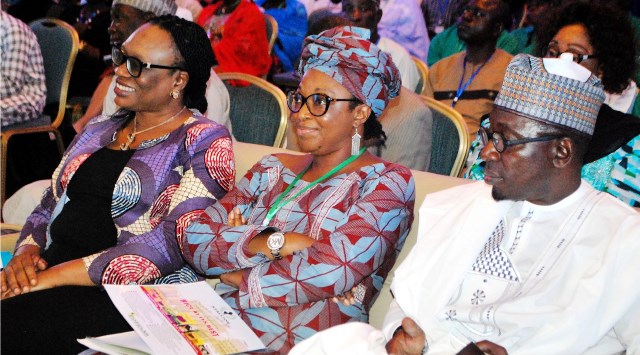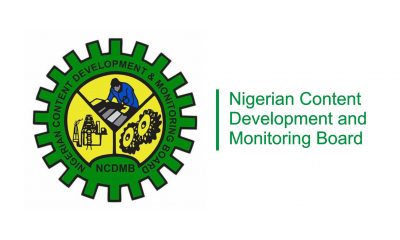Health
CMD Lists Gains Of SNEPCo’s Cancer Machine
The new cutting-edge cancer treatment machine just installed at the National Hospital, Abuja will reduce patient’s treatment waiting time from 16 minutes to two minutes, the Chief Medical Director of the Hospital, Dr. Jaf Momoh, said last Friday at the inauguration of the equipment by the Vice President, Prof. Yemi Osinbajo.
The Elekta Synergy Linear Accelerator radiotherapy machine donated by the Nigeria National Petroleum Corporation (NNPC) and Shell Nigeria Exploration and Production Company (SNEPCo) enables treatment to focus on the cancer tumor and not impact other organs in the patient.
Momoh described the intervention by NNPC and SNEPCo as timely noting that first cancer treatment equipment in the hospital became disused in 2017 after 17 years of use which caused the hospital management to set out for two state-of-the-art replacement machines.
According to him, the first replacement machine was installed and inaugurated in December 2017 and has since “treated 850 patients in over 25,000 cycles of radiotherapy sessions”.
“With this new machine, the hospital is poised for effective and efficient cancer treatment with no interruption during periods of routine equipment maintenance,” Momoh said, adding that indigent patients would enjoy subsidised treatment.
In his speech, Vice President, Prof Yemi Osinbajo said cancer prevention initiatives should be promoted, noting that many cases of the disease could be prevented.
Represented by the Permanent Secretary, Federal Ministry of Health, Alhaji Abdullahi Mashi, Osinbajo said “The increasing trend in the prevalence of cancer may be a reflection of lifestyles which goes to show that lifestyle modifications may go a long way in curtailing the scourge. This underscores the importance of awareness creation at all health facilities and provision of screening facilities.”
The Vice President charged well-meaning Nigerians and organisations “to replicate what NNPC and Shell Nigeria have done in other health facilities to make cancer treatment easily accessible to patients.”
SNEPCo’s Managing Director, Bayo Ojulari, said the intervention by NNPC and SNEPCo was to support government to widen treatment access, reduce waiting time significantly, and provide world-class facility that boasts of precision.
“The Elekta Synergy LINAC offers a unique radiation therapy technique that accurately shapes the radiation dose to the tumour with very little or no adverse effect on the surrounding organs, he said.
According to him, the cancer support was one of the five critical health projects being executed across the country by NNPC, SNEPCo and their co-venture partners.
He listed other projects to include Medical Emergency Response Improvement Programme in Lagos; Health System Strengthening Project at the Primary Healthcare Centre in Ogijo, Ogun State; Community Care Programmes – Health in Motion – across Nigeria; and Integrated Humanitarian Assistance Project for internally displaced persons in Dikwa, Bornu State where over 50,000 persons have so far enjoyed a broad range medical services, with over 826 children delivered.
Group Managing Director of NNPC, Mr. Mele Kolo Kyari, who was represented by the Group General Manager, Public Affairs, Mr. Ndu Ughamadu, pledged the commitment of the corporation to any initiatives aimed at touching the lives of Nigerians and stemming medical tourism out of the country.
Also at the equipment inauguration were former Speaker, House of Representatives and Chairman of the Governing Board of the National Hospital, Abuja, Mrs. Patricia Etteh; Managing Director of JNC International, the equipment solutions partner, Mrs. Clare Omatseye; Director, The Shell Petroleum Development Company of Nigeria Limited, Mr. Bashir Bello; and representatives of SNEPCo’s co-venture partners: Esso E&P Nigeria (Deepwater) Ltd; Total E&P Nigeria Ltd; and Nigeria Agip Exploration Ltd.
Health
‘How Micro RNA Research Won Nobel Prize’
Two United States scientists who unraveled the human micro RNA have won the Nobel Prize in Physiology or Medicine 2024.
Victor Ambros and Gary Ruvkun won the coveted prize for their work on microRNA as their discoveries help explain how complex life emerged on earth and how the human body is made up of a wide variety of different tissues.
MicroRNAs influence how genes – the instructions for life – are controlled inside organisms, including humans.
Every cell in the human body contains the same raw genetic information, locked in our DNA.
However, despite starting with the identical genetic information, the cells of the human body are wildly different in form and function.
The electrical impulses of nerve cells are distinct from the rhythmic beating of heart cells. The metabolic powerhouse that is a liver cell is distinct to a kidney cell, which filters urea out of the blood.
The light-sensing abilities of cells in the retina are different in skillset to white blood cells that produce antibodies to fight infection.
So much variety can arise from the same starting material because of gene expression.
The US scientists were the first to discover microRNAs and how they exerted control on how genes are expressed differently in different tissues.
The medicine and physiology prize winners are selected by the Nobel Assembly of Sweden’s Karolinska Institute.
They said: “Their groundbreaking discovery revealed a completely new principle of gene regulation that turned out to be essential for multicellular organisms, including humans.
“It is now known that the human genome codes for over 1,000 microRNAs.”
Health
WHO Begins Regulation On Antibiotic Waste
The World Health Organisation (WHO) has begun acting to curb effects of antibiotic pollution.
The new guidance on wastewater and solid waste management for antibiotic manufacturing sheds light on this important but neglected challenge ahead of the United Nations General Assembly (UNGA) High-Level Meeting on antimicrobial resistance (AMR) taking place on 26 September 2024.
The emergence and spread of AMR caused by antibiotic pollution could undermine the effectiveness of antibiotics globally, including the medicines produced at the manufacturing sites responsible for the pollution.
Despite high antibiotic pollution levels being widely documented, the issue is largely unregulated and quality assurance criteria typically do not address environmental emissions. In addition, once distributed, there is a lack of information provided to consumers on how to dispose of antibiotics when they are not used, for example, when they expire or when a course is finished but there is still antibiotic left over.
“Pharmaceutical waste from antibiotic manufacturing can facilitate the emergence of new drug-resistant bacteria, which can spread globally and threaten our health. Controlling pollution from antibiotic production contributes to keeping these life-saving medicines effective for everyone,” said Dr Yukiko Nakatani, WHO Assistant Director-General for AMR ad interim.
Globally, there is a lack of accessible information on the environmental damage caused by manufacturing of medicines.
“The guidance provides an independent and impartial scientific basis for regulators, procurers, inspectors, and industry themselves to include robust antibiotic pollution control in their standards,” said Dr Maria Neira, Director, Department of Environment, Climate Change and Health, WHO. “Critically, the strong focus on transparency will equip buyers, investors and the general public to make decisions that account for manufacturers’ efforts to control antibiotic pollution.”
Health
Kebbi Harmonises Doctors’ Salaries To Curb Brain Drain
In a concerted effort to curb brain drain, the Kebbi State Government has harmonised medical doctors’ salaries to be at par with their colleagues in the federal government’s tertiary health facilities.
Kebbi State Commissioner for Health, Musa Inusa-Isma’il, disclosed this at the handing over of ambulances to the state-owned health facilities at the Ministry of Health in Birnin Kebbi yesterday.
Inusa Isma’il, according to a statement by Ahmed Idris, the Chief Press Secretary to the governor, said the essence of the harmonisation was to retain the existing medical doctors and attract more to the services of the state.
According to him, the doctors across the state had already started enjoying the new salaries from August 2024.
He said the release of the vehicles was in fulfilment of Governor Nasir Idris’ promise to uplift health care services in the state.
“His Excellency said I should inform you, the beneficiaries of this gesture, that the vehicle should be strictly used for the intended purpose. It should not be used for anything else.
“If there is no referral case, each of the vehicles must be parked at the hospital by 6 pm. The governor said you should warn your drivers against reckless driving as well as violating the instructions.
“We should also do everything possible to reciprocate the gesture by working according to the terms and conditions attached,” he advised.
The benefiting health facilities included Sir Yahaya Memorial Hospital, Birnin Kebbi; State Teaching Hospital, Kalgo; General Hospital, Argungu; General Hospital, Yauri; General Hospital, Zuru; and General Hospital, Bunza.
In his speech, the permanent secretary of the ministry, Dr Shehu Koko, recalled that the ambulances were handed over to the ministry last Friday by the governor for the onward handover to the benefiting hospitals.
He observed that the ambulances would go a long way in improving the referral system in the state, adding that delays in reaching the secondary and tertiary facilities would be eliminated.
The permanent secretary attributed the high rate of maternal mortality in the country to delays in getting to the health facilities for proper medical care.
“We believe with the provision of these ambulances, part of the gaps we have in our referral system will be addressed, whereby patients who require secondary healthcare could be easily transported to secondary and tertiary health centres, where they can get such help,” he said.
In a goodwill message, Commissioner for Information and Culture Alhaji Yakubu Ahmed expressed gratitude to the governor for the support he has given to the ministry to excel.
While advising the beneficiaries to use the vehicles judiciously, the commissioner advised that services and maintenance of the vehicles must be prompt to derive the maximum benefits from the vehicles.
The commissioner also highlighted some achievements recorded by the government in the last year, including beautification of the state capital, completion of a multimillion-naira ultramodern state secretariat, road construction, construction and renovation of classrooms and upgrading of some health facilities, among others.
-

 Business1 day ago
Business1 day agoIFAD, VCDP Harp On Rice threshing Machines To Boost Harvest
-

 Featured1 day ago
Featured1 day agoWe’re Working To Improve Quality Of Life Of Rivers People -Fubara …As Taraba Gov Inaugurates 6.55km Okania-Ogbogoro-Mgbaraja Roads Project
-
Sports1 day ago
NBF Announces Olympics Preparation Date
-
Nation1 day ago
Community Organises Civic Reception For LG Boss
-
Rivers1 day ago
Expert Advocates IT Driven Security In Rivers
-
News1 day ago
Tinubu To Present 2025 Budget To NASS Dec 17
-
News1 day ago
Fubara Unveils Steps To Boost Agriculture In Etche …As Omehia Flags Off Egwi-Afara-Mba Road Project Says Road’ll Enhance Connectivity, Economic Activities
-

 Business1 day ago
Business1 day agoNCDMB Tasks Media Practitioners On Effective Reportage

